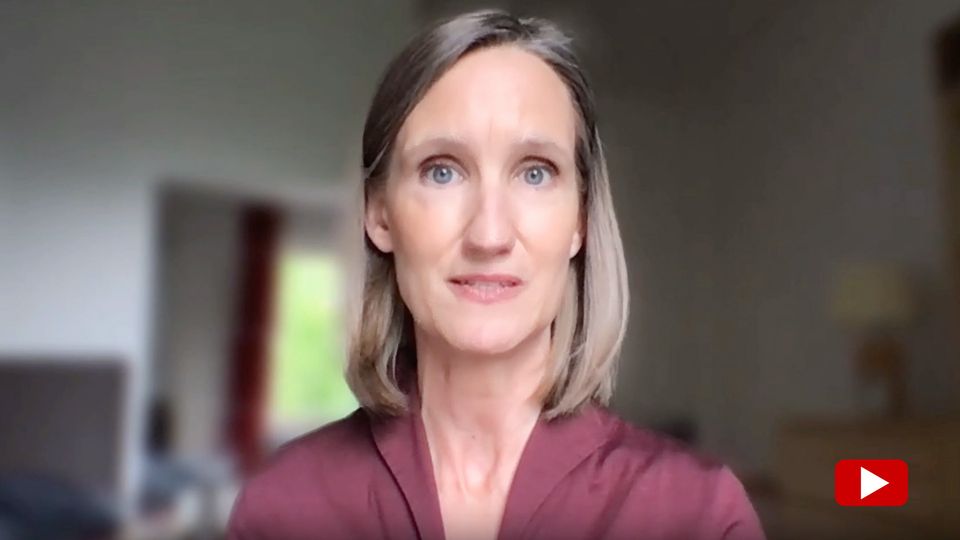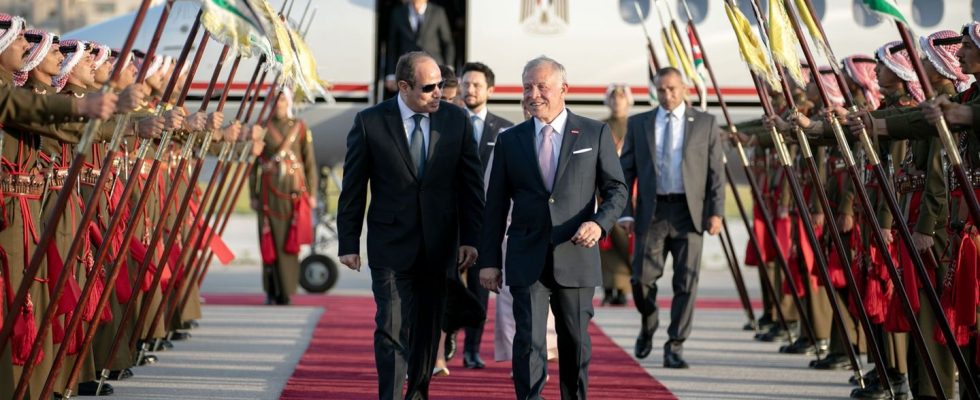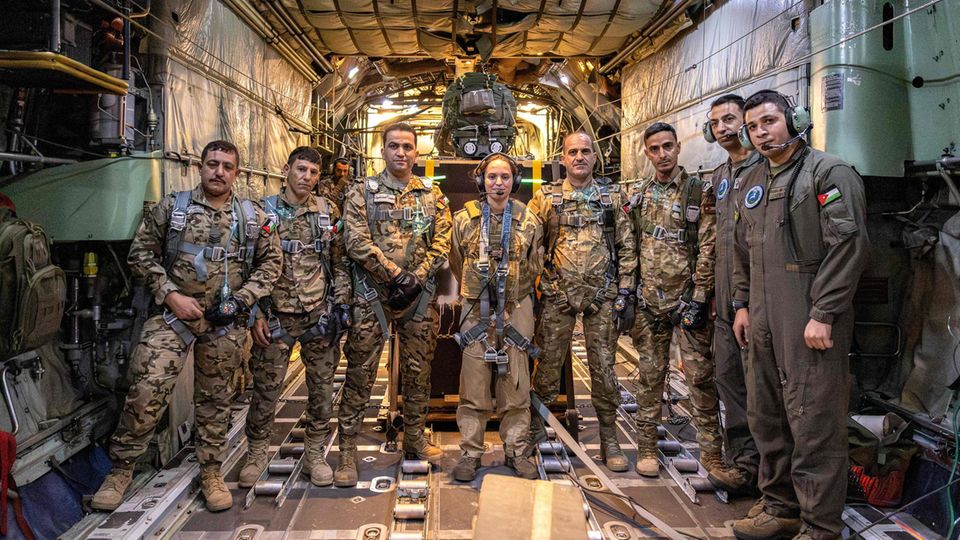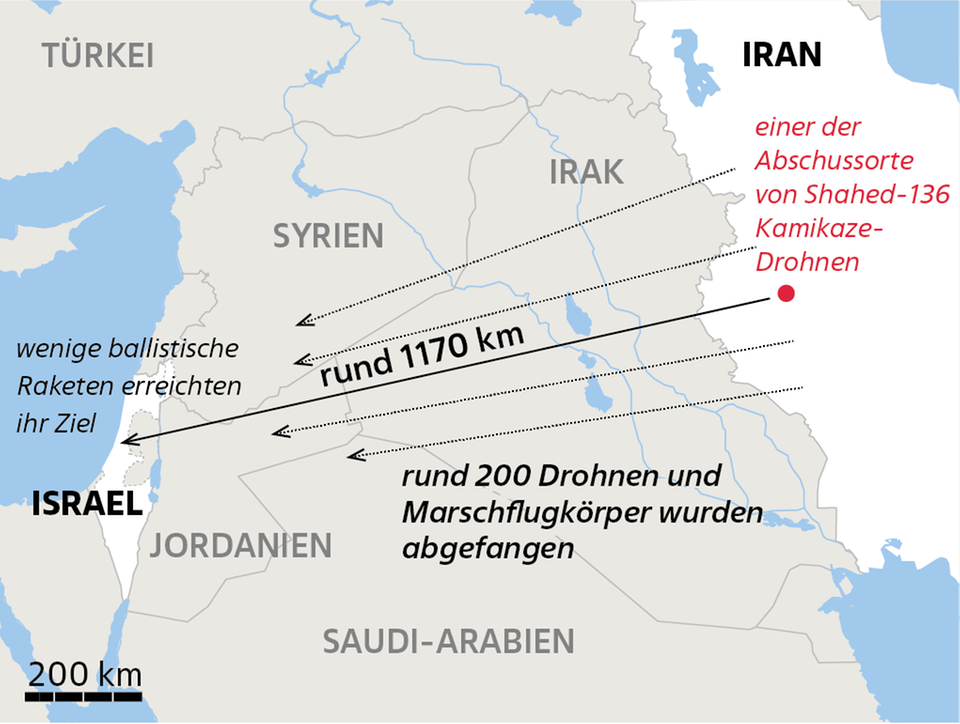There is a threat of a military tennis match between Israel and Iran in the Middle East. And right in the middle, as a network so to speak: Jordan. The small country has found itself caught between the fronts – also because it represents opposing interests.
These days, Abdullah II, King of Jordan, must feel like a diplomatic juggler with a pretty big problem: He’s not holding five balls in his hand, but five grenades. If he drops one of them, the ground in the Middle East shakes. Loyalty to Washington, partnership with Jerusalem, fear of Tehran, concern for Gaza and unrest in Amman, their own capital. Does Abdullah keep track, his nerves, his control?
The Arab kingdom has long been described as an island of stability in a sea of chaos. Since this weekend, the image of a sailing ship in distress has been more accurate. When Iran fired hundreds of drones, rockets and cruise missiles towards Israel on Sunday night – a reaction to a bombing of the Iranian consulate in Syria that was probably orchestrated by Tel Aviv – Jordan did something unexpected: it launched F16 fighter jets from its air force and take a few dozen bullets out of the sky. And that is why we are now finally in a quandary, both domestically and internationally.
It was expected that Western allies such as the USA, Great Britain and France would come to the rescue in repelling an Iranian attack. But Jordan as Israel’s defender of the skies? The country whose military aircraft went to war against the Jewish state four times between 1948 and 1973? Old Israelis can still remember bombings from Amman. Now the “Jerusalem Post” titled one of its articles about Jordan’s mission with the line: “From enemy to ally.”
Cold peace between Jordan and Israel
It’s not that easy. The Jordanian-Israeli relationship has always been complicated. Almost exactly 30 years ago, in October 1994, both countries concluded a peace agreement as a follow-up to the Oslo II Accords. Telephone and flight connections were set up, a Jordanian embassy opened in Tel Aviv, an Israeli one in Amman, the police authorities worked together in the future, and shared industrial parks were created in the border area. Israel even gave Jordan 16 discarded Cobra helicopters to fight against the Islamic State.

Expert on Israel’s response to Iranian attack: “Use the moment of strength”
06:09 minutes
But it was a cold peace, an economic and security alliance, not reconciliation between the peoples. That couldn’t exist, given the 2.4 million Palestinian refugees registered in Jordan. They make up 20 percent of the Jordanian population, and their diaspora is nowhere larger. Palestinians are now the majority in the Hashemite Kingdom. One of their own, Queen Rania, is even at the head of state.
The mood on the Jordanian streets is correspondingly anti-Israel: Since Prime Minister Benjamin Netanyahu responded to Hamas’ atrocities with bombs on Gaza on October 7th, thousands of demonstrators have been marching in front of the embassy building with the morning star every week. They are calling on their government to cancel the peace agreement with Israel.
King Abdullah personally flew aid supplies to Gaza
In the Gaza war, Amman is actually firmly on the side of the Palestinians. The Jordanian military dropped relief supplies over the war-torn strip even before the Americans did. Princess Salma, the first Jordanian female fighter pilot, and her father – the king – personally flew with them on deliveries. Jordanian Foreign Minister Ayman Safadi called the Israeli military’s actions a “genocide.” In November, an economic deal that would have brought water to Jordan and energy imports to Israel in return collapsed.
Royal Airforce in the literal sense: Princess Salma (center) is the first female fighter pilot in Jordan. She also flew with aid deliveries to Gaza.
© Jordanian Armed Forces / AFP
King Abdullah has to walk a tightrope: between his foreign policy doctrine of detente and regional balance on the one hand and domestic political pressure on the other. The official Jordanian reaction to the intercepted Iranian drones was correspondingly shaky. While Israel publicly celebrated the regional solidarity, its Arab neighbor remained cautious: the operation in its own airspace was not an explicit help for Israel, but an act of self-defense, a protection of its own population. Minister Safadi made it clear in TV interviews that Jordan will continue to defend itself against attacks by “all parties” in the future.
A calculated statement towards Tehran. On the night of the big attack, Jordan was warned not to get involved – that would make the small country “the next target.” The Jordanian Foreign Ministry therefore summoned the Iranian ambassador to the meeting on Sunday. The air force deployment in favor of Israel “puts pressure on Jordan,” said Saudi al-Sharafat, founder of a think tank and former brigadier general in the Jordanian secret service, to the Washington Post.
Partner of Israel, ally of Washington, protecting power of the Palestinians – is that possible?
Jordan is caught between two fronts: as a partner of Israel, an ally of the USA and a protective power for the Palestinians. Ideologically anyway. And now also geographically – Israel directly to the west, Iran further to the east. In the future, the nights in Amman will probably often be brightly lit by the tails of drones and rockets. The fact that Israel will respond to Iran’s attack is not a question of if, but only of when and how. There is a threat of a constant back and forth of air strikes, a military tennis match, and right in the middle, as a network, so to speak: Jordan.
Iran’s attack on Israel: On April 13, Iran fired a total of more than 300 drones, cruise missiles and ballistic missiles at Israel
© stern, DPA Infographic; Source: ISW/IDF/dpa
King Abdullah II and his cabinet had apparently feared this for a long time. At the end of 2023, they asked Washington for a Patriot air defense system. Since then, the US has increased its military aid to the kingdom. Jordan already depends on American aid and receives almost a billion dollars in American development and military aid every year. The funds must be regularly approved by the US Congress. The Arab support of the F16 fighter jets (once supplied by the Americans) could also be understood as a service for an old friend who is willing to pay.
US military personnel are allowed to move freely in the country. They train the Jordanian troops at two military bases. In January, three American soldiers died there after a drone attack from Iraq. Caused by: The terrorist group Kataib Hezbollah, which swears loyalty to Iran. At the same time, Iranian proxies are smuggling drugs and weapons into the country from Syria. The leadership in Tehran has been trying to destabilize Jordan from the north for a long time.
On Monday, an Iranian Foreign Ministry spokesman said: “Our relations with Jordan are friendly.” It was just a good look at a bad game in which Jordan wants to please everyone but can’t please. That’s the tragedy for King Abdullah II: no matter how much he can juggle, in the end he doesn’t have it in his own hands. What happens next for his country now depends on the nature of the announced Israeli counterattack on Iran – and thus in the power of one man in Tel Aviv: Benjamin Netanyahu.



